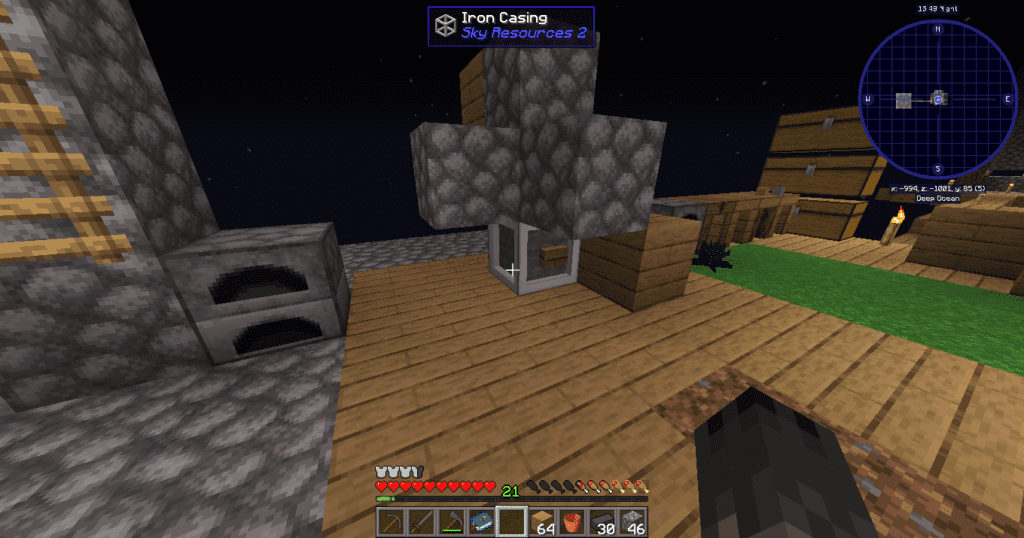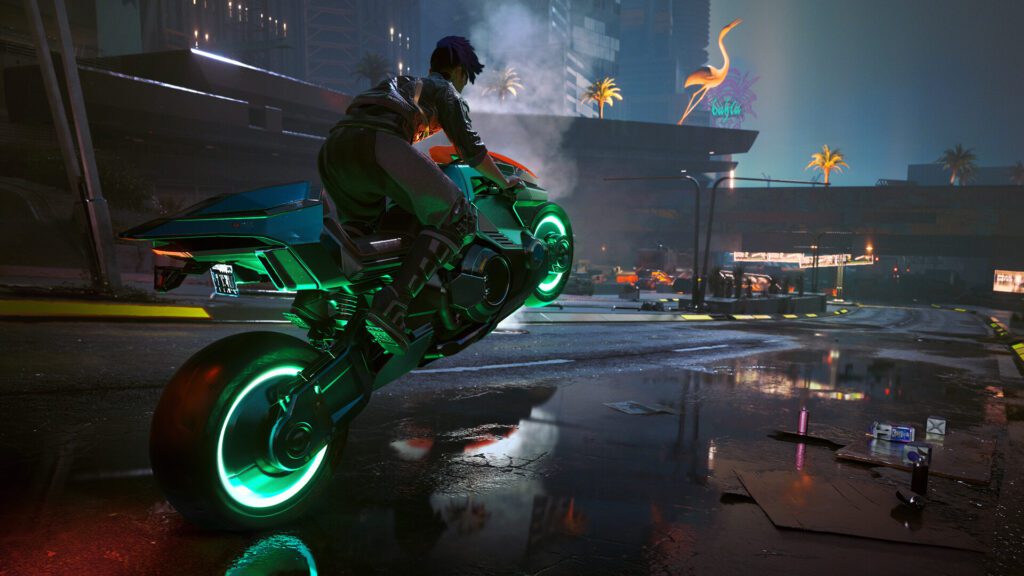As the gaming industry continues to conquer the world, generating staggering revenues in the hundreds of billions in the process, it’s clear that games are more than just a pastime: they are a cultural phenomenon that transcends geographical barriers.
Behind those deeply immersive adventures, the intense battles, and the emotional narratives that challenge our view of the world, lies a process that many gamers may not fully appreciate: game porting, the unsung hero that ensures players can experience the same gaming thrills on multiple platforms – be it a smartphone, a desktop, or a console like the Xbox.
But do you know how much does it cost to port a game? This is what we’ll see throughout the article. We’ll also offer some insight into the factors influencing the cost of this essential process, which will let you make better estimations for your own projects.
How much does it cost to port a game?
We know you hate to hear it, but… it depends.
Here’s the thing: the gaming industry is a massive beast. According to Statista, games are set to generate over $490 billion in revenue by the end of this year (and there are no signs of slowing down). Furthermore, games are currently one of the most popular hobbies worldwide, with more than 3 billion people being immersed in these digital realms.
To satisfy the varied appetite for diverse gaming experiences, games come in countless forms, complexities, and sizes. From hypercasual mobile games, like a Breakout clone, to fully-fledged AAA titles into which players can sink over 200 hours and still not experience everything they have to offer, the diversity within the industry is truly appalling.
Therefore, it should come as no surprise that there’s no one-size-fits-all answer to the question of how much it costs to port a game.
If you still want some ballpark values, then professional game porting services will charge around $10,000 to $50,000 for simpler projects to a few million dollars for the biggest titles, which are often released on multiple platforms at the same time. Of course, these values can go even lower or unfathomably higher on a per-project basis.

Factors affecting game porting costs
Now that we’ve established the “it depends” nature of game porting costs, let’s take a deeper look into the nitty-gritty of why costs can fluctuate so dramatically:
Gameplay complexity
Games can range from straightforward “do this, go there” experiences to ones that really make you think due to their many complexity layers. The simpler a project is, the less work it will require, which can significantly lower the game porting costs.
The opposite is also true: bigger games with multiplayer features, advanced AI, and huge code bases will require a lot more work, thus increasing costs.
Assets and platforms of choice
The visual richness of your game matters. Projects with highly detailed 3D models, textures, and numerous assets will typically require more time and effort to adapt to other platforms.
Visually complex projects might require additional effort to accommodate the target platform’s graphical capabilities. This is especially true when targeting older and/or less powerful platforms, which might require unique adjustments and optimizations to ensure a smooth player experience.
By the way, the number of targeted platforms will incur additional costs. Each one has unique hardware specifications and capabilities, which might make it challenging to optimize depending on the intended experience. You also have to consider how different platforms often run on distinct operating systems, so adapting your project to these various software environments might require extensive modifications.
Finally, to release your game on various platforms (especially mobile and console ones), it must meet specific quality and certification standards imposed by the platform holders. They ensure that the game functions correctly, maintains security, and complies with policies that are specific to each platform, which often requires additional adjustments and tests, increasing costs.
Estimated timeframe
The timeframe allotted for game porting can significantly impact the costs involved. Tight deadlines and rushed projects often equal higher expenses. When game porting projects have tighter timeframes, developers might need to allocate more human resources (like overtime hours and more professionals) to meet the deadline.
Adding insult to injury, a rushed porting process can lead to a lack of thorough testing and optimization. This may result in more issues and bugs that need to be addressed after the game’s launch, which could financially backfire on the developers.
In contrast, longer, well-paced timeframes allow professionals to adapt the game to the new platform while comprehensively testing everything, effectively minimizing the need for costly post-launch fixes. You also get to avoid potential PR catastrophes at launch this way!

Scope of changes
The scope of change refers to the extent of modifications, enhancements, and additions desired during the porting process. Yes, you read it right – while game ports are all about making them available on other platforms, some developers opt to introduce new features and enhancements to the base game, which requires additional development time and resources.
This is commonplace when porting games to newer platforms: their graphics, audio, and overall experience are polished and modernized. It even has a name to call its own: “remaster”.
Also, some games might require extensive customization to suit different platforms. This usually involves optimizing controls for specific devices (such as touchscreens for mobile and handheld controllers for usual consoles) and tailoring the user interface (UI) to each platform’s requirement.
Unsurprisingly, every little detail demands additional work, which adds to the budget.
What are the benefits of porting games?
OK, so if porting games can quickly get expensive, there must be a lot of advantages, right?
Indeed, you’re correct. While this process involves investment and effort – sometimes a lot – the benefits of porting games to additional platforms can be substantial and pay off immensely:
- Enhanced visibility: every platform has its storefront or marketplace where its most popular, trending, and upcoming games are featured. Porting your game to various platforms will increase its visibility, potentially garnering more attention from players and resulting in higher organic discoverability;
- Increased player base and revenue: as a result of their far-reaching presence, ported games significantly extend their potential player base. This often leads to higher sales numbers, especially if the game already has a strong following and positive reviews on its original platform;
- Longevity and sustainability: the industry is always creeping forward and seeking innovation. Thus, gaming platforms usually have a limited lifespan. Porting a popular title to newer platforms ensures its longevity and sustainability as older ones phase out;
- Player convenience: porting a game to different platforms also makes it more convenient for your players, who can choose their preferred platform. As everyone has a favorite gaming platform, this flexibility accommodates a wide range of player preferences;
- Cross-platform play: albeit not a generic benefit of porting games, some titles allow users on different devices and platforms to interact and compete through a feature known as “cross-play gaming”.

Conclusion
As much as we wish it did, the question of how much it costs to port a game doesn’t have a simple, defined answer. The gaming industry is vast and diverse, offering a multitude of gaming experiences – from the simplest mobile games to sprawling AAA titles. And the expenses of porting them to other platforms can vary significantly based on the factors we’ve explored throughout the article.
One thing remains certain, though: the importance of careful planning and budgeting when considering porting your project to other platforms. Before committing to it, assess the specific requirements of your project, consider potential revenue streams, and evaluate the benefits of reaching a wider, more diverse audience. By doing so, you can make informed decisions that align with your goals and current budget.
If you’re considering porting your game to reach new horizons or seeking help with all things game development, we at Main Leaf are your trusted partner. With over a decade of experience in the gaming industry, we understand the intricacies of game porting, design, development, and more.
Whether you’re an indie developer or an established studio, our highly qualified team of 70+ professionals can assist you in bringing your vision to life – be it by outsourcing some 3D models to us or by commissioning a fully-fledged title. Contact us today to start discussing your game development needs within 24 hours!

